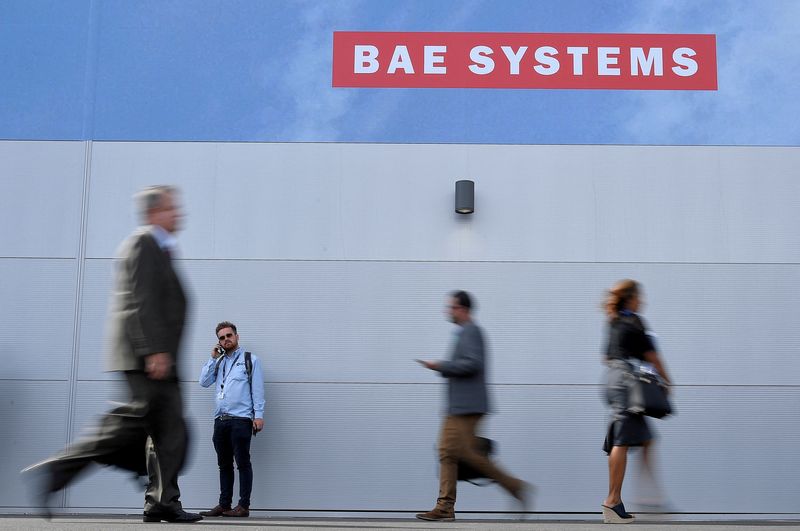Investing.com’s stocks of the week
By Muvija M
LONDON (Reuters) - Britain's BAE Systems (OTC:BAESF) said its $5.5 billion purchase of Ball Corp.'s (NYSE:BALL) aerospace business would help it meet the soaring demand for munitions seen since the invasion of Ukraine, underscoring the impact the war has had on the sector.
Russia's invasion of its neighbour has led to a surge in demand for weapons, with European governments ordering less-sophisticated items such as shoulder-fired missiles, artillery, and drones that have proven critical in the conflict.
BAE, which produces everything from infantry fighting vehicles to missiles and launchers, said earlier this month that global uncertainty had driven its military equipment orders to a record level.
Colorado-based Ball Corp 's aerospace assets provide aerospace and national defence hardware such as sensors and antennas, and also supply electronics that are used to make munitions, BAE U.S. CEO Tom Arseneault said.
Elaborating on the rationale for the deal, seen by analysts as expensive, BAE CEO Charles Woodburn told reporters that the ongoing conflict in Europe had highlighted the significance of space assets for situational awareness and intelligence, surveillance and reconnaissance capabilities.
"The reappraisement of the threat environment, not just in the European theatre but also in Asia Pacific, is certainly causing our (government) customers to put defence ... further up their priority sets," he said.
"We see space as becoming an increasingly important domain of future warfare. This acquisition really accelerates our position into one of the fastest growing areas of defence spending," he added.
Shares in BAE have surged 60% in value since Russia sent troops into Ukraine on Feb. 24 last year.
The deal announced on Thursday, is the company's largest to date and could mark the beginning of a consolidation in the defence sector as companies seek out strategic fits to meet changing requirements due to the war, with demand for cheaper items such as drones on the rise.
Both Ukraine and Russia have attacked each other using drones in the conflict, with the U.S.-based Atlantic Council think tank describing the aerial strikes as "the world’s first drone war."
The focus on high-volume, less costly weapons underscores how the war in Ukraine has reshaped strategic thinking in European capitals about how future conflicts could be fought.
($1 = 0.7824 pounds)
